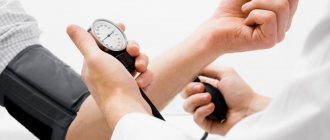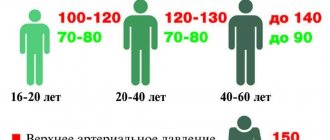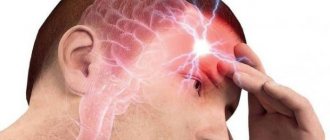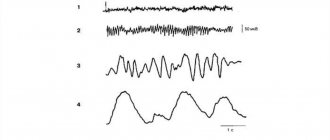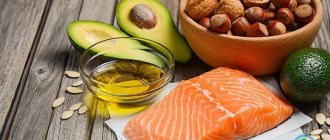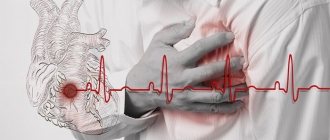Vegetovascular dystonia (hereinafter referred to as VSD) is a medical problem that almost every modern person faces. VSD “makes itself known” by disruptions in the functioning of the autonomic nervous and cardiovascular systems. So, the classic symptoms of dystonia are:
- blood pressure surges;
- insomnia;
- migraine;
- decreased ability to work;
- apathy;
- irritability.
Important: medical statistics are disappointing - at least 80% of the adult population suffers from the above signs of VSD. Some autonomic disorders are also observed in schoolchildren (in particular, during puberty, when hormonal levels are “raging”).
The prevalence of the disease leads to the fact that many patients suffering from such unpleasant manifestations are interested in the question: is it possible to drink alcohol during VSD? To answer this, it is worth understanding what vegetative-vascular dystonia is, and what changes in the body of a dystonic patient can occur as a result of drinking alcohol.
The concept of VSD
This term usually refers not to a disease, but to a complex of symptoms, the appearance of which is associated with disturbances in the functioning of internal organs. The main cause of VSD, according to doctors, is the frantic pace of modern life, hence constant stress and overwork, which “hit” the nervous system.
Signs of dystonia can also result from:
- gastrointestinal diseases;
- problems with the central nervous system;
- emotional instability;
- genetic predisposition;
- alcohol abuse, smoking and other bad habits;
- depressive states, regular stress, other forms of psycho-emotional experiences.
Attention! Neuroses are the main “triggers” that contribute to the occurrence of symptoms of VSD. Any chronic diseases only aggravate the course of dystonia, which arose due to problems with the nervous system.
Is it harmful to drink alcohol with autonomic dysregulation?
Ethyl alcohol destroys brain neurons and disrupts the mechanism for the synthesis of neurotransmitters, which are responsible for transmitting impulses. The autonomic (autonomic) nervous system cannot normally coordinate the work of internal organs. There are malfunctions in the functioning of the digestive, respiratory systems, heart and blood vessels, problems with thermoregulation. In dystonics, intoxication occurs quickly, and the hangover is severe.
The functioning of the autonomic nervous system is equally negatively affected by strong and low-alcohol drinks.
How does VSD manifest and why is it dangerous?
“Victims” of dystonia regularly experience attacks of lightheadedness. These are accompanied by: pale skin, changes in heart , chest pain, painful urination. Dystonics feel cold in their extremities, become irritable, and suffer from sexual dysfunction. Patients with VSD are “haunted” by mood swings, apathy, and their body temperature may rise (low-grade fever).
Important: the “identifying” sign of dystonia is a feeling of lack of air (the cause is hyperventilation of the lungs). There are no organic prerequisites for such pathological conditions; they are a manifestation of functional (vegetative) disorders.
Attacks of VSD are always accompanied by “signals” from the blood vessels and the heart. A syndrome that is harmless at first glance, if not in a timely manner , can lead to serious disruptions in the functioning of the body:
- the appearance of regular panic attacks with a consistently reduced emotional background;
- hypoxia (oxygen starvation) and deterioration of cerebral circulation;
- atherosclerosis, hypertension, varicose veins, angina, heart attack, stroke and other pathologies of the cardiovascular system.
Vegetovascular dystonia and ethanol
How do the concepts of VSD and alcohol relate: it has been scientifically proven that alcoholic drinks not only aggravate the course, but also initially provoke the development of this syndrome.
Despite the fact that autonomic disorders are not fatal and do not pose a direct threat to human health, exacerbation of VSD after alcohol can cause a serious blow to the body. Doctors say that alcohol is the main “provocateur” of panic attacks and other “faithful companions” of dystonic patients. It doesn’t matter what kind of alcohol gets into the blood - beer, vodka, cognac - the well-being of the “victim” of VSD will suffer in any case. At the same time, the dystonic person cannot even get “well drunk” - a hangover in such people develops rapidly and when consuming minimal “dosages” of alcohol.
To clearly demonstrate how detrimental ethanol affects the body of a patient with autonomic disorders, it is enough to measure blood pressure and pulse immediately before and 6-7 hours after drinking alcoholic beverages.
Attention! For most dystonics, 40-50 ml of vodka or any other alcohol causes an immediate jump in blood pressure and an increase in heart rate (by 100-150%).
VSD and alcohol: what changes occur in the body
In people with vegetoneurosis, ethyl alcohol aggravates neurocirculatory disorder. Dangerous syndromes develop that can lead to serious complications. Symptoms begin to actively appear 5–6 hours after the feast.
Characteristics of syndromes:
- Cardialgic.
Chest pain and discomfort, increased weakness and fatigue. - Tachycardic.
The heart rhythm is disturbed, the feeling of heat and tremors of the limbs are disturbing. Often there is a sharp jump in blood pressure by 20–30 mmHg. Art. even with slight intoxication. - Bradycardic.
Blood pressure drops sharply, weakness, dizziness, nausea appear, and coordination is impaired. - Arrhythmic.
Blood pressure increases, pulse quickens, breathing slows. A person feels a lump in the throat, a lack of oxygen. - Psychoneurotic.
Unreasonable anxiety, fear, unstable psycho-emotional state.
To get rid of dysregulation of the ANS (vegetative-vascular system), it is necessary to completely stop smoking and drinking alcoholic beverages.
Alcohol and hypotonic form of VSD
Ethanol dilates blood vessels, blood pressure rises. Additionally, your mood improves and you feel more energetic. But all positive changes are temporary. Therefore, with the hypotonic form of the disease, it is allowed to drink alcohol no more than 1-2 times a week, no more than 100 ml. You must first consult with your doctor.
When drinking alcohol excessively, people with hypotension experience heart pain, migraines, and irritability.
A hangover is accompanied by tremors, loss of strength, and nausea.
Panic attacks and alcohol
The occurrence of panic attacks is a serious pathological consequence of alcohol intake by dystonics. This term is used by doctors to describe a sudden deterioration in health, which is accompanied by: sharp jumps in blood pressure, lightheadedness, nausea, trembling, numbness, weakness of the arms and legs, rapid heartbeat, fever, and a feeling of constriction in the throat.
Doctors say that panic attacks are “faithful companions” of residents of megacities suffering from VSD. Some patients try to stop an attack with alcohol - in this case, ethanol can sooner or later cause pathological changes at the psychoneurological level.
You can “recognize” a panic attack by physiological, cognitive-emotional, and behavioral manifestations. The first list includes:
- tachycardia;
- dyspnea;
- feeling of squeezing in the chest;
- increased sweating;
- frequent urination;
- visual aura;
- muscle tension;
- dizziness.
Patients are haunted by anxiety, concern for their own life and health, they find it difficult to think, concentrate , and make informed decisions. Dystonics suffer from insomnia and avoid situations that could cause attacks of fear.
Alcohol during VSD and panic attacks leads to the fact that an intoxicated person cannot sit in one place, constantly moves, and tries to perform certain actions (most often unconscious). Numbness of the limbs, a tingling sensation in the back of the head are “faithful” companions of such pathological conditions.
How to deal with a hangover?
Clinical symptoms play a priority role, according to which the scope of assistance is decided. In any case, an important measure to help the patient is to restore water-salt metabolism, eliminate alcohol intoxication and saturate the body with a complex of vitamins.
To relieve mild and moderate intoxication, adsorbents are used, and fatty foods and plenty of fluids are prescribed. Regenerative processes in the body are corrected through high consumption of fruits and vegetables.
To eliminate unpleasant symptoms in the form of fear, a lump in the throat, and other consequences of a hangover with VSD, feasible physical exercises are prescribed to improve general blood circulation and metabolic processes, as well as to quickly remove alcohol breakdown products from the body.
What is the danger of alcohol for dystonics?
The “drops” in blood pressure that patients with VSD experience when drinking alcohol overload the heart and blood vessels. Over time, wear and tear of the cardiovascular system can trigger a heart attack or stroke with minimal physical exertion.
Hypotonics - people with low blood pressure - at first glance, can safely drink alcohol. Their well-being should theoretically improve from this. In practice, the situation is different - despite the fact that after drinking such patients feel more alert and feel a surge of energy, they also experience tingling in the heart, head, severe migraines, and aggressive conditions.
Attention! Beer is considered especially dangerous for people with VSD. Of course, the ethanol content in this drink is lower than in vodka or cognac, but it is usually consumed in large quantities. This results in a lingering hangover and exacerbation of dystonia.
VSD and alcohol - consequences for panic attacks:
- prolonged depression;
- isolation, isolation from real life;
- apathy, loss of interest in life.
Another danger of regular drinking is as follows. Some patients manage to briefly reduce the symptoms of VSD and improve their well-being with the help of alcohol (due to vasodilation). But after a while, a slight relief will turn into a severe withdrawal syndrome (as a rule, it is associated with low-quality alcohol, and not with dystonia). A hangover naturally develops into a prolonged depression, which is accompanied by regular and fairly intense panic attacks. Many dystonics continue to try to “drown out” attacks of lightheadedness with alcohol, which only provokes the development of alcohol dependence.
The result is a vicious circle that results in rapid wear and tear of the heart muscle and chronic alcoholism.
Description of the disease
Vegetative-vascular dystonia is a rather insidious disease that complicates the life of a sick person.
Sometimes he has to completely abandon his usual way of life. Even a moderate form of the disease can reduce a person’s performance by half. A severe stage of the disease can reduce the ability to work to zero.
Vegetative-vascular dystonia can develop very quickly and lead to various diseases:
- hearts;
- gastrointestinal tract;
- hypertension.
The occurrence of mental illness is likely. To avoid serious consequences, strictly follow your doctor's instructions.
In order to find out how alcohol affects the body of a patient with vegetative-vascular dystonia, you need to find out the consequences of the disease itself. Even if you experience a variety of symptoms of VSD, this does not mean that treatment for this disease will not have a positive effect.
If you follow all the recommendations, the disease should not cause serious consequences.
However, if you neglect your health, you will suffer from high blood pressure. Subsequently, this can lead to diseases of the cardiovascular system.
Doctors do not advise neglecting all kinds of prevention methods. It is imperative to normalize the rhythm of life and try to avoid negative emotions.
If negative aspects are still present in your life, do not dwell on them, just switch to any positive memories.
Smoking and VSD
It is a known fact that smoking speeds up blood circulation. Thanks to this, blood pressure rises slightly, vision improves and the brain begins to work more productively.
For patients diagnosed with vegetative-vascular dystonia, such moments bring a feeling of comfort.
Therefore, there are a lot of smokers among them. In addition, they smoke much more cigarettes than healthy people. They just need that feeling of euphoria. But this is only a short-term effect that lasts no longer than half an hour.
The harm from smoking cigarettes is much greater than the apparent positive aspects.
Due to accelerated blood circulation, the vessels also receive increased stress. Accordingly, your heart also suffers: it has to work several times harder, and it wears out much faster.
The harm from smoking is very great, because your life can be shortened by several years. Smoking during VSD is contraindicated.
Alcohol and vegetative-vascular dystonia
Alcohol is extremely undesirable for VSD. We can absolutely say that there is no need to combine alcohol and this disease. There may be the most dire consequences.
When drinking alcohol, the body begins to work in accelerated mode. The pressure may double.
- This can lead to a heart attack, as the heart cannot cope with such stress.
- The likelihood of blood clots increases significantly.
It’s also worth remembering about hangovers. A person with vegetative-vascular dystonia already does not feel very well in everyday life, and his body may simply not be able to withstand a hangover. This condition can be fatal.
It is very difficult for many people to give up alcohol, even if it is strictly prohibited for vegetative-vascular dystonia.
It is also undesirable to drink low-alcohol drinks, such as beer. After drinking alcohol, the body relaxes. It seems that there are no problems, and the person feels easy and good. But this is all an illusion. Drinking alcohol when you have VSD is harmful to your health.
Replacement for cigarettes and alcohol
Is it possible to drink or smoke cigarettes with VSD? The clear answer is no. The body needs to fight your disease, and not have negative consequences from these activities. But it is very difficult to give up your bad habits.
Weigh the pros and cons, and you will see that life without them will become much better and more colorful.
Bad habits can be replaced with other, but useful ones. For example, smoking stimulates your brain. Caffeine has the same effect. Start drinking coffee in moderation and you can quit smoking cigarettes forever.
When drinking alcoholic beverages, you seem to want to calm your nervous system.
You need to escape from reality and forget about all your problems. But in the modern world there are a great many medications that can bring your nervous system to a normal state.
You will become a balanced person and will not be nervous about every little thing. Such drugs, when used correctly, have virtually no side effects, unlike alcohol.
Don't forget about the terrible hangover that will definitely be present the next day.
Another component in the fight against cigarette smoking and alcohol should be sport. Choose the type that suits your liking. When playing sports, endorphins are produced, which are also called the hormone of happiness.
You will always be in a good mood. Plus, you will become stronger and more confident. Dedicate at least 4 days a week to your studies. In addition, physical activity is very useful for vegetative-vascular dystonia.
Watch your health. Avoid bad habits. If you feel unwell, you should immediately consult a doctor. https://gipergidroz.net
How to relieve symptoms of VSD
The best solution is not to drink alcohol at all. If such radical measures could not be taken immediately, one should strictly control what, how much and when a patient with VSD consumes.
To prevent panic attacks and eliminate signs of dystonia, it is recommended to adjust your lifestyle:
- regularly practice walking in the fresh air;
- if necessary, take herbal sedatives (sedatives) - Novo-Passit, Gerbion, etc.;
- It’s wise to draw up a daily menu, eat small meals often, instead of a bottle of beer it’s better to drink a glass of freshly squeezed juice or dried fruit compote;
- alternate periods of work and rest, pay due attention to beneficial physical activity (good for blood vessels).
Attention! If a patient with VSD suffers from prolonged depression, the symptoms of which are not relieved by available sedatives, it is better to seek help from a psychotherapist.
Prevention of vegetative-vascular dystonia
Those who are at risk (emotional people experiencing stress, patients with vascular and heart diseases, etc.) are recommended to exercise regularly or at least exercise daily at home. Running, swimming, skiing are the best options for physical activity for dystonics.
You should avoid overwork, try not to react to stressful situations, and do not forget about a quality night's rest.
A balanced diet is an important element in the prevention of VSD. It is better if the daily menu contains as many vegetables, lean fish and meat as possible. The proportion of caffeine-containing drinks, sweets, and baked goods in the list of products must be limited .
So, drinking alcohol has a negative effect on the body of patients with VSD. Alcohol not only aggravates symptoms, but also provokes the development of this unpleasant syndrome. To prevent attacks of lightheadedness and panic attacks, dystonics are advised to reduce as much as possible (or better yet, completely abstain) from the amount of alcohol .
